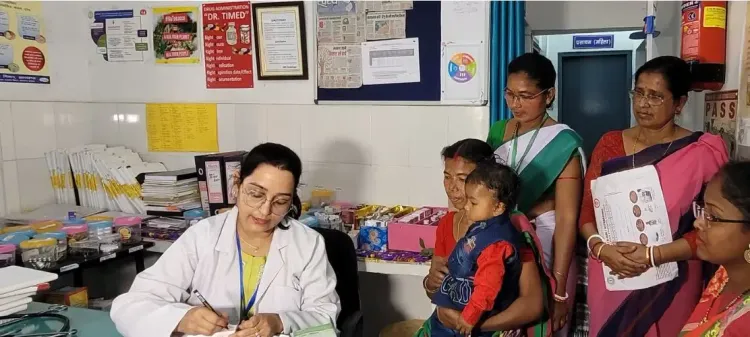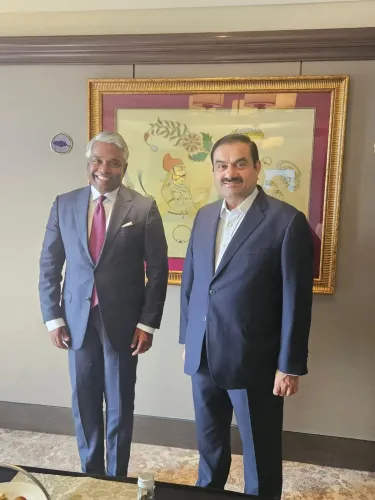Should countries invest more in primary health care to combat future pandemics?

Synopsis
Key Takeaways
- Investment in primary health care is critical for pandemic readiness.
- Real-time risk assessment and international cooperation are essential.
- Strong primary health systems foster community trust.
- Shift in care, measurement, and cooperation are necessary for effective health architecture.
- The WHO Pandemic Agreement should be ratified and financed.
New Delhi, Oct 14 (NationPress) Increasing investments in primary health care is vital for ensuring that both local and global communities are adequately equipped to prevent and respond to future pandemics, according to a recent report from the World Health Organization (WHO) released on Tuesday.
The Global Preparedness Monitoring Board (GPMB) report, unveiled during the ongoing World Health Summit in Berlin, stressed the pressing need for a transformation in global health security amid a backdrop of increasing volatility, uncertainty, complexity, and ambiguity while the world continues to recover from the Covid-19 pandemic.
Advocating for a significant shift in pandemic readiness, it also encouraged nations to enhance investments in real-time risk assessment and international collaboration.
The GPMB, created in 2018 after the West Africa Ebola outbreak, is dedicated to evaluating the global state of readiness for pandemics and other public health emergencies. This initiative is supported by both the WHO and the World Bank.
“In an increasingly unpredictable and unstable global landscape, genuine preparedness for pandemics and health crises must be grounded in well-functioning and well-funded primary health care systems,” stated Kolinda Grabar-Kitarović, GPMB Co-Chair and former President of Croatia.
“Strong primary health systems penetrate deep into communities, delivering essential health services during peacetime and fostering the trust that is crucial for an effective health response during crises,” Grabar-Kitarović further noted.
The report called upon governments and institutions to embrace a paradigm shift aimed at resetting the global health architecture for pandemic preparedness, focusing on three key actions: care, measure, and cooperate.
It emphasized that a shift in “care” is essential to strengthen frontline systems through investments in primary health care, engaging communities more closely, and ensuring a safeguarded health workforce.
Regarding “measurement,” the report advocated for the establishment of a comprehensive pandemic risk monitoring system that tracks threats, vulnerabilities, and preparedness in real time, integrating health, social, economic, and environmental data into clear signals for leaders.
On the topic of “cooperation,” the report underscored the necessity of a global health architecture founded on principles of solidarity and equity, promoting the ratification, implementation, and financing of the WHO Pandemic Agreement.









